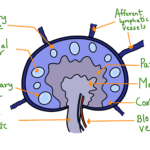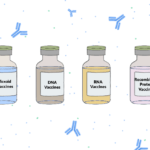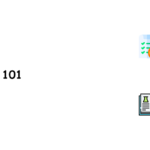Introduction:
Welcome to our comprehensive guide on Vitamin B12, also known as cobalamin. In this blog post, we will delve into the crucial roles of Vitamin B12 in the body, explore its dietary sources, discuss absorption mechanisms, examine the consequences of deficiency, and shed light on the potential benefits of supplements. Whether you’re a health enthusiast or someone seeking to optimize their well-being, understanding the significance of Vitamin B12 is essential. Let’s dive in!
The Roles of Vitamin B12:
Vitamin B12 plays a multitude of important roles in the human body. It actively participates in the formation of red blood cells, DNA synthesis, nerve function, and the metabolism of proteins, carbohydrates, and fats. One of the key roles of Vitamin B12 is its involvement in the conversion of homocysteine to methionine, which helps to prevent elevated homocysteine levels, reducing the risk of cardiovascular disease. Additionally, it contributes to the maintenance of a healthy brain and supports optimal cognitive function. This vital nutrient acts as a coenzyme for several crucial enzymatic reactions, making it indispensable for overall health.
Sources of Vitamin B12:
Vitamin B12 is primarily found in animal-based products such as meat, poultry, fish, eggs, and dairy. These sources provide readily bioavailable forms of Vitamin B12. For example, a 3-ounce serving of cooked clams can provide over 1,000% of the recommended daily intake of Vitamin B12. Other animal-based sources include beef liver, salmon, trout, and yogurt. For individuals following a vegetarian or vegan lifestyle, obtaining sufficient amounts of Vitamin B12 can be challenging as plant-based sources are limited. However, some plant-based foods, such as fortified cereals, nutritional yeast, and certain algae-based products, can provide small amounts of Vitamin B12. It is important to note that these plant-based sources may not provide enough to meet daily requirements, making supplementation necessary for those who do not consume animal products.
Absorption Mechanisms:
The absorption of Vitamin B12 involves a complex process that requires the cooperation of various organs. First, hydrochloric acid in the stomach separates B12 from the proteins in food. Then, an intrinsic factor, secreted by cells in the stomach lining, binds to B12, allowing it to be absorbed in the small intestine. Finally, Vitamin B12 is transported to the bloodstream and delivered to the cells where it is needed. Any disruptions in this intricate process can lead to deficiency. Certain conditions, such as pernicious anemia or gastrointestinal disorders, can impair the production or function of intrinsic factor, hindering Vitamin B12 absorption. In such cases, supplementation or alternative administration methods may be necessary.
Consequences of Deficiency:
Vitamin B12 deficiency can have profound consequences on overall health. Early symptoms of deficiency may include fatigue, weakness, tingling or numbness in the extremities, difficulty walking, memory problems, mood disorders, and even anemia. Prolonged deficiency can lead to more severe complications, affecting the nervous system and potentially causing irreversible damage. Certain populations, such as older adults, vegetarians, vegans, and individuals with gastrointestinal disorders, are particularly susceptible to deficiency. Early detection and prompt treatment of deficiency are crucial to prevent long-term complications.
Prevention of Vitamin B12 Deficiency:
Preventing Vitamin B12 deficiency involves ensuring an adequate intake through a balanced diet or supplementation. For individuals following a vegetarian or vegan diet, it is important to choose fortified foods or take Vitamin B12 supplements regularly. Regular monitoring of Vitamin B12 levels through blood tests can help identify deficiency early on and allow for appropriate interventions.
Recommended Intake of Vitamin B12:
The recommended daily intake of Vitamin B12 varies depending on age, sex, and life stage. For adults, the recommended intake is 2.4 micrograms per day. Pregnant and breastfeeding women may have higher requirements. It is important to note that individual needs may vary based on factors such as underlying health conditions and medication use. Consulting with a healthcare professional can help determine the appropriate intake for specific individuals.
Risk Factors for Vitamin B12 Deficiency:
Several factors can increase the risk of Vitamin B12 deficiency. These include a vegetarian or vegan diet, gastrointestinal disorders, older age, gastrointestinal surgery, long-term use of certain medications like proton pump inhibitors or metformin, and conditions that affect the intrinsic factor production or function. Being aware of these risk factors can help individuals take proactive steps to ensure adequate Vitamin B12 intake.
Interactions:
Vitamin B12 can interact with certain medications and substances. For instance, long-term use of certain anticonvulsant medications may interfere with Vitamin B12 absorption or increase the risk of deficiency. Additionally, excessive alcohol consumption can impair Vitamin B12 metabolism. It is important to discuss any medications, supplements, or substances with a healthcare professional to ensure optimal Vitamin B12 status.
Treating Vitamin B12 or Folate Deficiency Anemia:
In cases where Vitamin B12 deficiency is severe or causes anemia, treatment may involve high-dose Vitamin B12 injections or nasal sprays to bypass the absorption issues. For individuals with folate deficiency anemia, supplementation with folic acid is also necessary. These treatments should be administered under the guidance of a healthcare professional.
Vitamin B12 Supplements:
Supplementation with Vitamin B12 can be an effective strategy to prevent or treat deficiency. Supplements are available in various forms, including oral tablets, sublingual tablets, nasal sprays, and injections. Choosing the right form of supplementation depends on individual needs and health conditions. Oral tablets are the most commonly used and are suitable for individuals with adequate stomach acid production and intrinsic factor function. Sublingual tablets are dissolved under the tongue and may be preferred for individuals with absorption difficulties. Nasal sprays and injections are typically used in cases of severe deficiency or malabsorption. It is crucial to consult with a healthcare professional to determine the appropriate dosage and method of administration based on individual requirements.
Conclusion:
Vitamin B12 is an essential nutrient that plays a vital role in numerous physiological processes. Understanding its roles, sources, absorption mechanisms, consequences of deficiency, and prevention strategies is crucial for maintaining optimal health. By incorporating Vitamin B12 into your diet, considering supplementation when necessary, and being aware of potential risk factors, you can support your body’s functions and promote a healthy and vibrant life.
Keywords: Vitamin B12, cobalamin, roles, sources, absorption, deficiency, supplements



